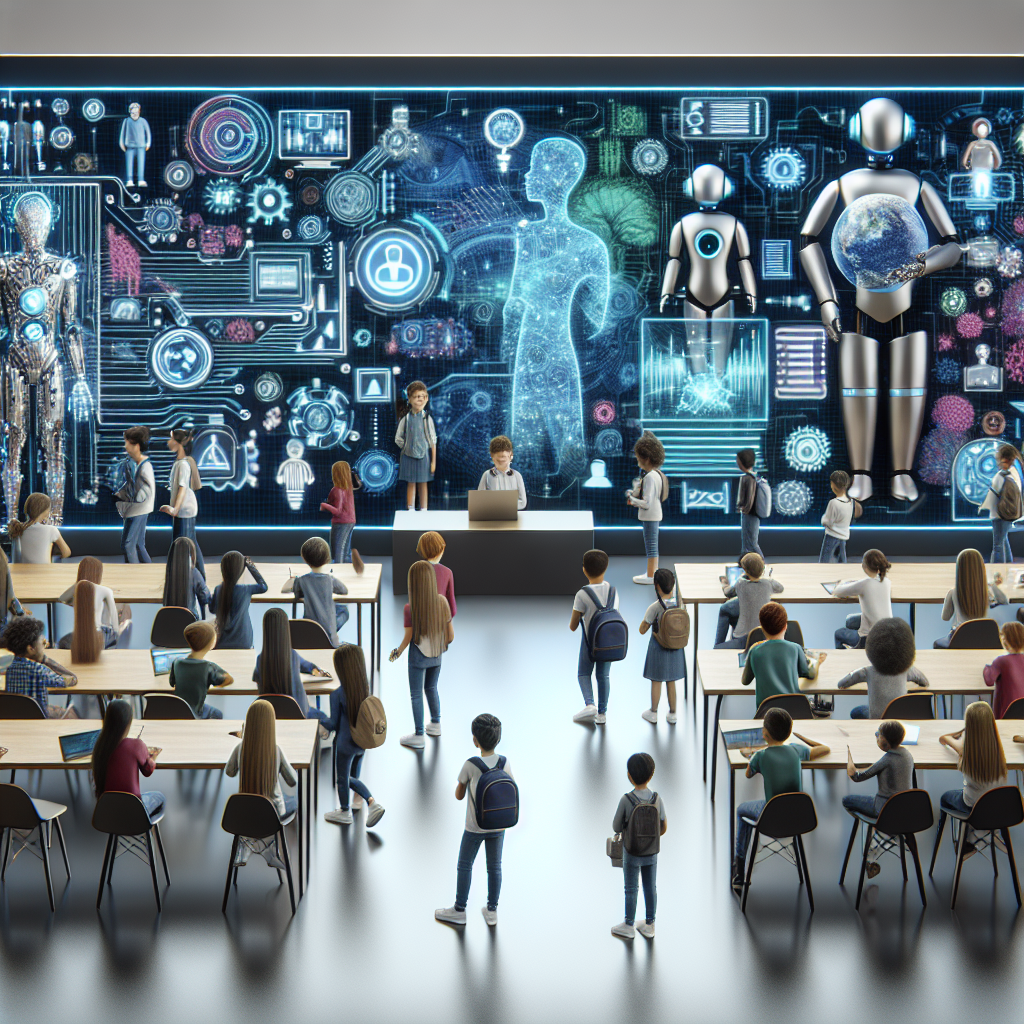The future of education is rapidly evolving with the integration of artificial intelligence (AI) and machine learning technologies. These advancements are revolutionizing the way students learn, teachers instruct, and institutions operate. From personalized learning experiences to predictive analytics, AI and machine learning are reshaping the educational landscape in ways that were once unimaginable.
AI and machine learning are being used in education to enhance student engagement, improve learning outcomes, and streamline administrative processes. These technologies have the potential to transform traditional educational practices and provide students with more personalized and adaptive learning experiences. With the ability to analyze vast amounts of data, AI can identify patterns and trends that can help educators better understand student needs and tailor instruction to meet individual learning styles.
One of the most significant benefits of AI and machine learning in education is the ability to provide personalized learning experiences. These technologies can analyze student data to create individualized learning paths that cater to each student’s strengths, weaknesses, and interests. This personalized approach can help students stay engaged and motivated, leading to improved learning outcomes.
AI and machine learning can also be used to enhance teacher instruction. These technologies can provide educators with real-time feedback on student progress, identify areas where students may be struggling, and offer suggestions for how to improve instruction. By leveraging these insights, teachers can better support student learning and adapt their teaching strategies to meet the needs of individual students.
In addition to personalized learning experiences, AI and machine learning are also being used to improve administrative processes in education. These technologies can automate routine tasks such as grading, scheduling, and record-keeping, freeing up educators to focus on more meaningful aspects of teaching. By streamlining administrative processes, AI and machine learning can help schools operate more efficiently and effectively.
Despite the many benefits of AI and machine learning in education, there are also challenges that must be addressed. One major concern is the potential for bias in algorithms used in educational settings. If not carefully designed and monitored, AI systems can perpetuate existing inequalities and reinforce stereotypes. It is essential for educators and developers to be aware of these biases and work to mitigate them to ensure that AI and machine learning technologies are used ethically and responsibly.
Another challenge is the need for educators to be trained in how to effectively use AI and machine learning technologies in the classroom. Many teachers may not have the technical skills or knowledge necessary to leverage these tools effectively. It is crucial for schools and institutions to provide professional development opportunities for educators to ensure they are equipped to integrate AI and machine learning into their teaching practices.
Despite these challenges, the future of education looks promising with the integration of AI and machine learning technologies. As these technologies continue to evolve and improve, they have the potential to revolutionize education and provide students with more personalized, engaging, and effective learning experiences.
FAQs:
Q: How are AI and machine learning being used in education?
A: AI and machine learning are being used in education to provide personalized learning experiences, enhance teacher instruction, and streamline administrative processes. These technologies can analyze student data, identify patterns and trends, and offer insights to help educators better understand student needs and tailor instruction to meet individual learning styles.
Q: What are some benefits of AI and machine learning in education?
A: Some benefits of AI and machine learning in education include personalized learning experiences, improved learning outcomes, enhanced teacher instruction, and streamlined administrative processes. These technologies have the potential to revolutionize education and provide students with more engaging and effective learning experiences.
Q: What are some challenges of using AI and machine learning in education?
A: Some challenges of using AI and machine learning in education include the potential for bias in algorithms, the need for educator training, and concerns about privacy and data security. It is essential for educators and developers to be aware of these challenges and work to address them to ensure that AI and machine learning technologies are used ethically and responsibly.

